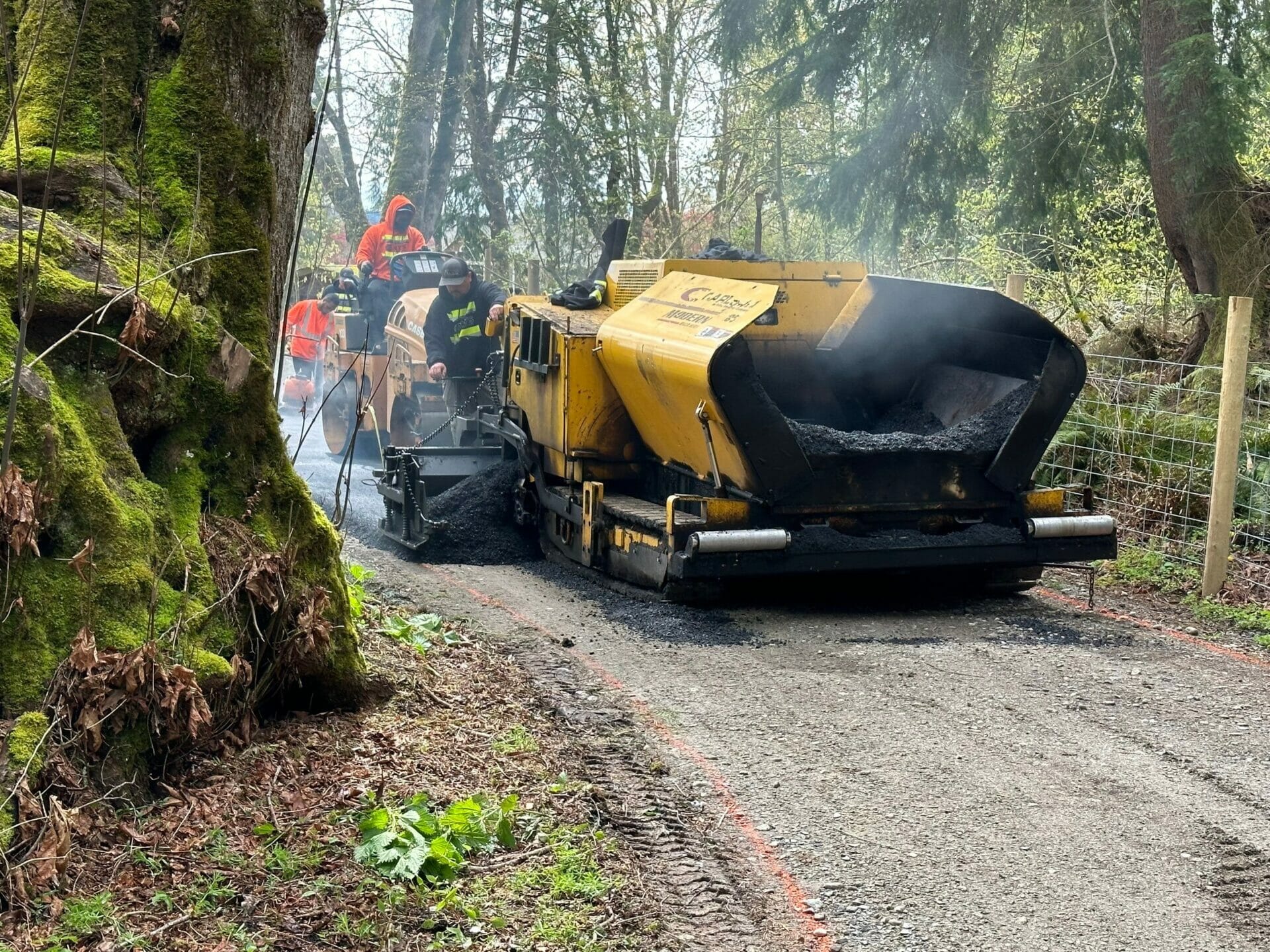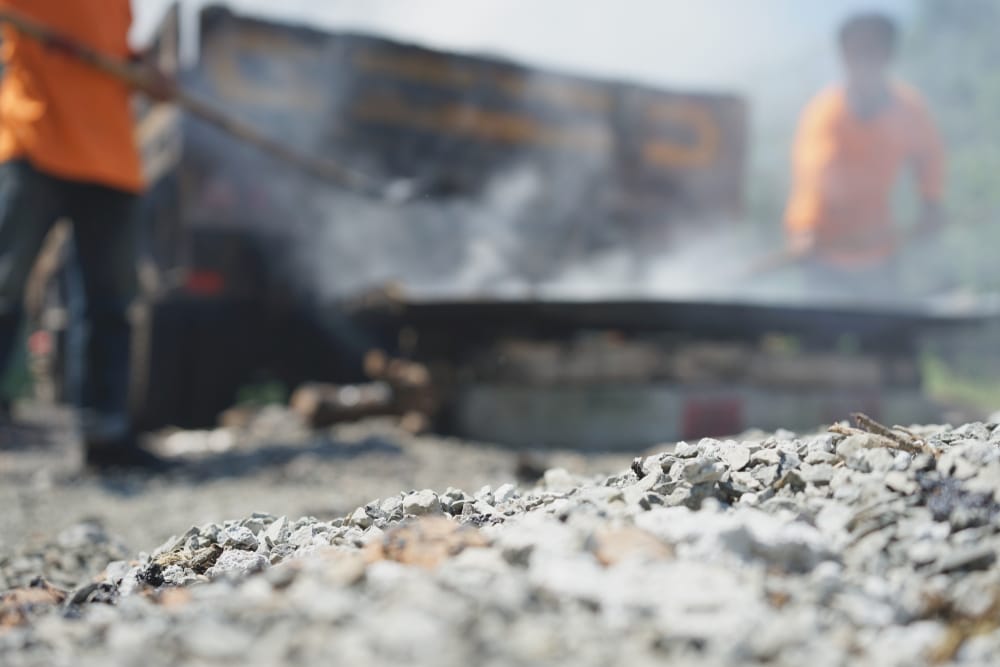Asphalt is an extremely durable material. That’s why it’s no surprise that more than 94% of paved roads in the U.S. are made of it. Despite asphalt’s ability to withstand corrosion, vehicle and foot traffic, and harsh weather conditions, extreme temperatures can damage it. For this reason, unfortunately, you can’t just install asphalt whenever you feel like it. Your paving contractor must take into account certain temperature requirements & ensure proper compaction so your asphalt can stay in place for the long term.
Luckily, NYS Enterprises is a leading Seattle paving company here to explain the various impacts of temperature on asphalt. In this blog post, we’ll also provide an overview of the types of asphalt temperatures to look out for, the best time to lay asphalt, and what happens when temps are too high or too low. But above all, we’ll explain why choosing a reputable asphalt company for your project is even more important than the number on the thermometer.
Three Asphalt Temperatures
There are three temperatures that help play a role in laying the ideal asphalt surface. Here’s a closer look at each one:
Asphalt Mix Temperature
The asphalt mix temperature is the temperature of the asphalt itself. It is important to keep asphalt temperatures within a certain range as you don’t want the material to become rigid and stiff, thus inhibiting its ability to compact or bind properly with the surface. On the other hand, if the temperature of the asphalt is too hot, then it will overheat the binder and fall apart. When looking at optimal asphalt mix temperatures, it is important also to consider the ground temperature and ambient temperatures as that will dictate if your mix heats up or cools down.
Ambient Temperature
Also known as air temperature, ambient temperature refers to the temperature of the outside environment. The ideal temperature for asphalt paving is typically around 50 degrees, however, depending on where you live, there is no way to ensure the perfect temperature or weather conditions outside. Here at NYS Enterprises, we are used to outdoor temperatures being lower and higher than this average and have implemented proven strategies to ensure our asphalt remains the right consistency.
Ground Temperature
Ground temperature is the temperature of the ground on which asphalt will be installed. If the ground is too hot, there’s a good chance the asphalt temperature won’t cool quickly enough. On the other hand, if it’s too cold, quality installation will be difficult to achieve.
Due to the fact that standard temperature thermometers can’t be placed deep enough into the pavement and are usually ineffective, many contractors use infrared thermometers to determine the ground temperature instead.
The Best Time To Lay Asphalt
In a perfect world, asphalt would be installed when the ground temperature and air temperature are both on the moderate side, which is most often during the late spring, summer, and early fall. While it would be ideal to have the temperatures to a certain degree, it is not 100% necessary when you have a skilled and experienced paving contractor.
Prior to installation, your contractor should take all the necessary precautions like scoping out the grounds, implementing proper drainage systems, grading & sloping, and ensuring proper compaction. Those things are going to be much more important for the quality and longevity of your asphalt – especially here in the Seattle area, where we are no stranger to rainfall and cold temps.
The Role of Compaction in Asphalt Paving
To ensure a seamless installation, lasting durability and strength of the asphalt, and the safety of the contractors on the job site, proper compaction is vital. It locks the layers together and, in turn, reduces the risk of premature pavement failure, cracking, potholes, and other damages. It’s the secret to professionally installed asphalt pavement that stands the test of time.

Leave Asphalt Paving to the Pros
As you can see, laying asphalt is a complex process. While you can attempt to do it yourself, it’s in your best interest to trust an experienced asphalt contractor. They’ll make sure that all the proper precautions and plans are in place, no matter the temperatures outside or on the ground. Once the installation actually begins, they’ll use the most advanced techniques and cutting-edge equipment that the average person simply won’t know about. With a professional by your side, like NYS Enterprises, you can avoid costly mistakes and headaches and ensure the job is done right the first time around.
Contact NYS Enterprises for Professional Asphalt Paving
At NYS Enterprises, we take asphalt paving and compaction very seriously. After all, we are dedicated to the professional installation and maintenance of asphalt pavement and have an impressive track record to prove it. Don’t hesitate to contact us today for more information about our asphalt paving solutions!





